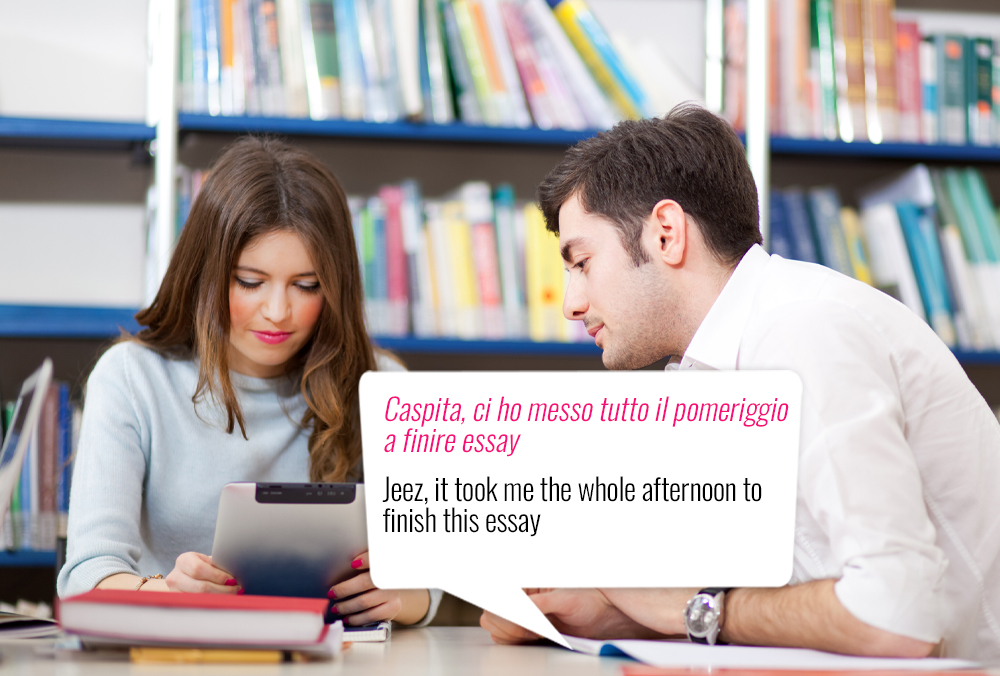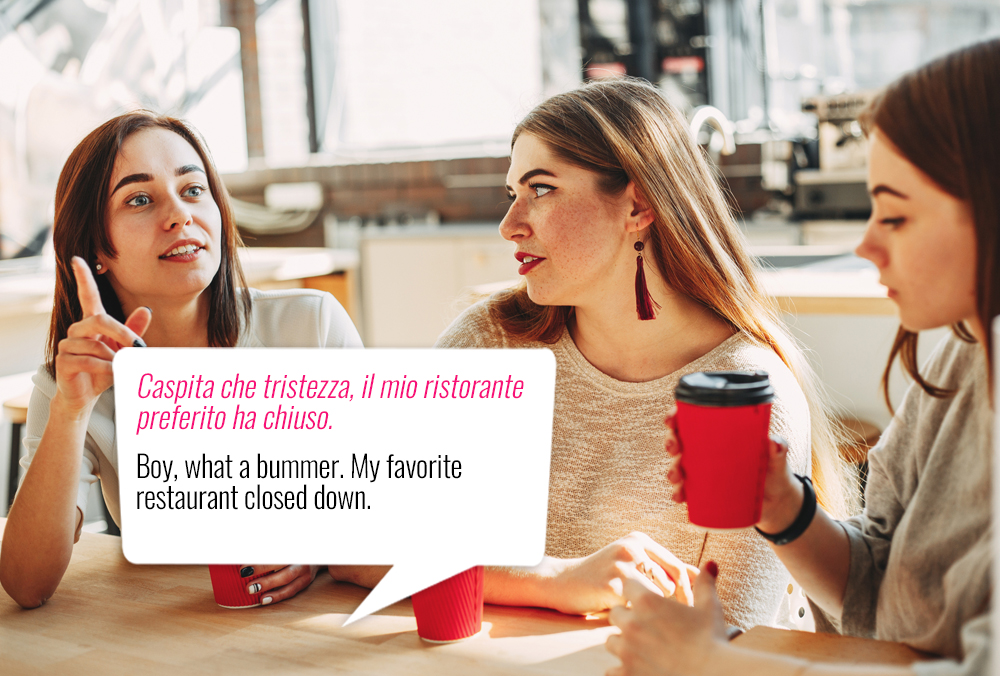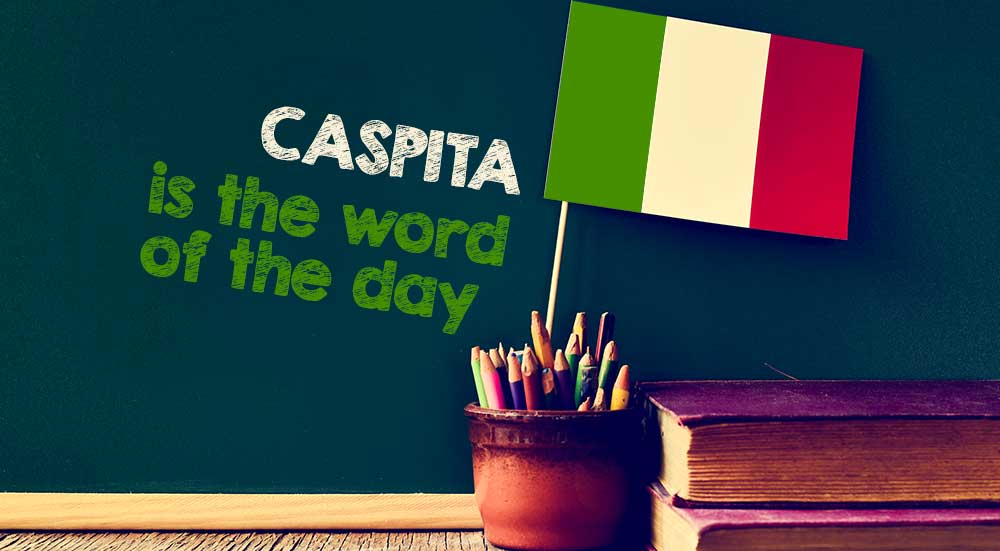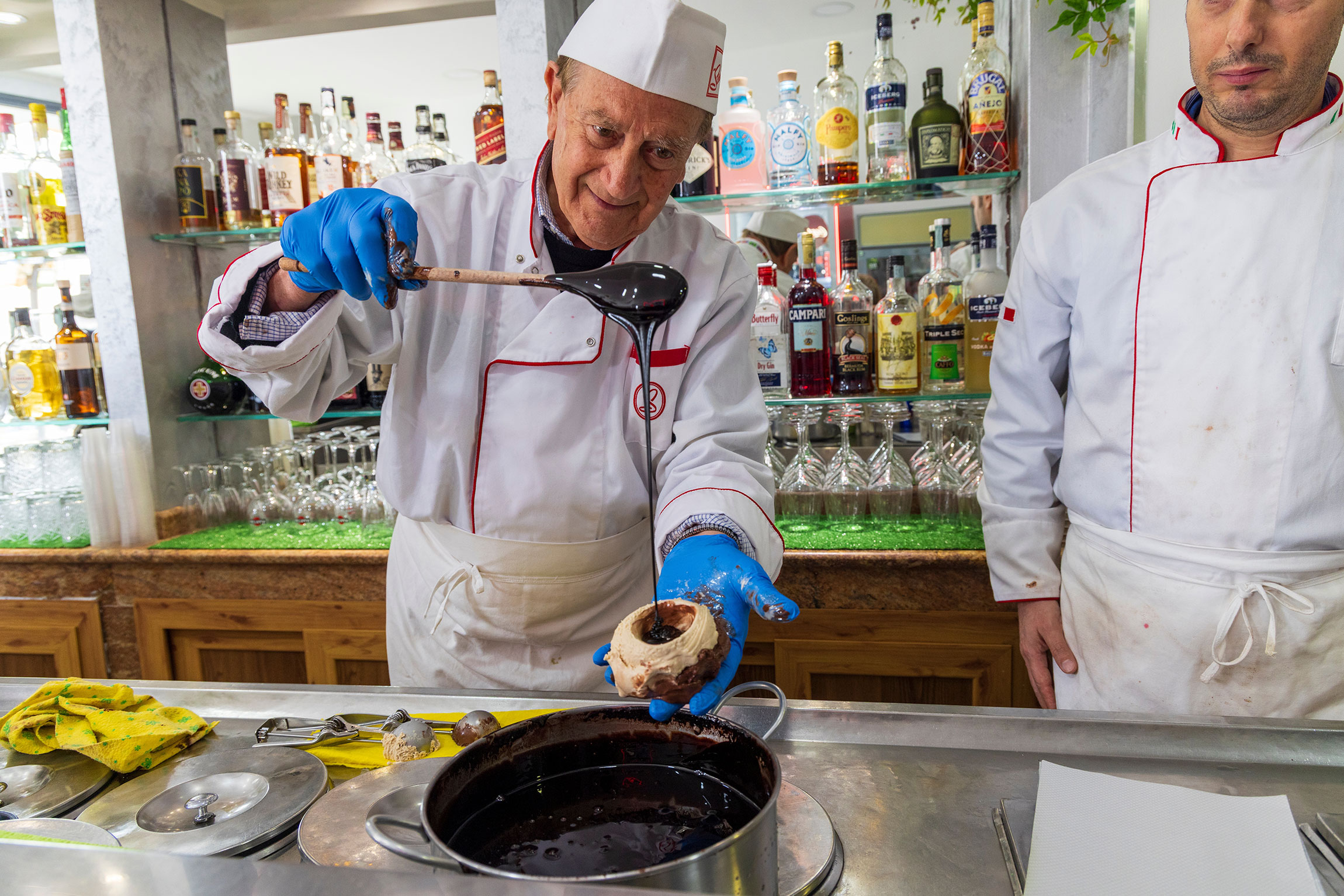Today’s word is caspita (cah-spee-tah), a common exclamation you have probably heard quite often from your Italian friends and relatives. It wants to express surprise and sometimes even sadness or resentment. In English, you can simply translate it with “woah” or “wow,” but also with “good heavens,” “boy,” “jeez,” “gosh” and all other expressions and words that remind you of these!
Its etymology is… interesting. Indeed, it is a 19th-century literary euphemism created to be used instead of a (still today) very common and rather vulgar word for the male genitals, that we Italians use as an interjection a tad too often. I must say that our linguistically talented forefathers were so good at modifying the original word that caspita doesn’t sound anything like it.
Caspita is quite common, and you can find it in sentences that show surprise, both positive and negative. For instance, you can say Caspita, sono felice che tu mi venga a trovare (“Wow, I’m happy you’re coming to see me!”), but also Caspita, mi displace davvero tanto (“Gosh, I am so truly sorry”).

At the same time, it can also appear in more varied contexts, such as in caspita, hai visto che traffico? (“Wow, have you seen the traffic?”) and caspita, che gran pranzo, era tutto buonissimo (“boy, what a meal: everything was delicious”). In other words, if you are looking for something versatile, then caspita is the word for you!
Don’t be surprised if you also come across, albeit not as commonly, its diminutive, caspiterina: it does exist, but you hardly hear it spoken anymore, as it has become quite old-fashioned and feels antiquated. You come across caspiterina in books, though! Its meaning is the exact same, so you could read something like Caspiterina, che sorpresa! (“Wow, what a surprise!”).
- Caspita, ci ho messo tutto il pomeriggio a finire essay
- Jeez, it took me the whole afternoon to finish this essay
- Caspita, conosci davvero Leonardo di Caprio?
- Woah, do you really know Leonardo di Caprio?
- Caspita che tristezza, il mio ristorante preferito ha chiuso.
- Boy, what a bummer. My favorite restaurant closed down.





























